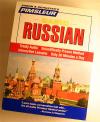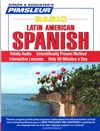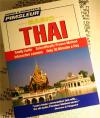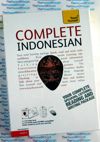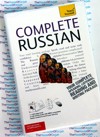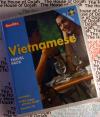Teach Yourself Swahili- 2 Audio CDs and Book - Learn to speak Swahili
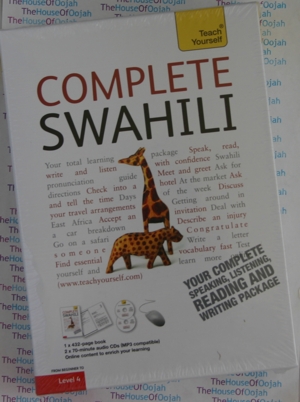
Teach Yourself Complete SwahiliBook and 2 Audio CD'sGet Other Teach Yourself Language Learning Audio Books click here |
 |
Teach Yourself Complete Swahili - 2 Audio CDs and Book2 CDs and Book Are you looking for a complete course in Swahili which takes you effortlessly from beginner to confident speaker? Whether you are starting from scratch, or are just out of practice, Complete Swahili will guarantee success! Now fully updated to make your language learning experience fun and interactive. You can still rely on the benefits of a top language teacher and our years of teaching experience, but now with added learning features within the course and online. The course is structured in thematic units and the emphasis is placed on communication, so that you effortlessly progress from introducing yourself and dealing with everyday situations, to using the phone and talking about work. By the end of this course, you will be at Level B2 of the Common European Framework for Languages: Can interact with a degree of fluency and spontaneity that makes regular interaction with native speakers quite possible without strain for either party. Learn effortlessly with a new easy-to-read page design and interactive features: NOT GOT MUCH TIME? AUTHOR INSIGHTS GRAMMAR TIPS USEFUL VOCABULARY DIALOGUES PRONUNCIATION TEST YOURSELF EXTEND YOUR KNOWLEDGE TRY THIS * This course is equally suitable for the complete beginner or the person with some knowledge of Swahili who is looking for a thorough grounding in understanding, speaking and writing Swahili. The topics covered will appeal to those learning for holiday and business purposes. Table of Contents: About the Author Joan Russell: About the LanguageSwahili (called Kiswahili in the language itself) is the first language of the Swahili people (Waswahili), who inhabit several large stretches of the Indian Ocean coastline from Kenya to northern Mozambique, including the Comoros Islands. Although only 5-10 million people speak it as their native language, Swahili is a lingua franca of much of East Africa and the Democratic Republic of the Congo, is a national or official language of four nations, and is the only language of African origin among the official working languages of the African Union. Swahili is a Bantu language that serves as the native tongue of various groups traditionally inhabiting about 1,500 miles of the Southeast African coastline. About 35% of the Swahili vocabulary derives from the Arabic language, resulting from its evolution through centuries of contact between Arabic-speaking traders and many different Bantu-speaking peoples inhabiting Africa's Indian Ocean coast. It also has incorporated Persian, German, Portuguese, Indian, and English words into its vocabulary due to contact with these different groups of people. Swahili has become a second language spoken by tens of millions in three countries, Tanzania, Kenya, and Congo (DRC), where it is an official or national language. The neighboring nation of Uganda made Swahili a required subject in primary schools in 1992�although this mandate has not been well implemented�and declared it an official language in 2005 in preparation for the East African Federation. Swahili, or other closely related languages, is spoken by nearly the entire population of the Comoros and by relatively small numbers of people in Burundi, Rwanda, Mozambique, Zambia, and Somalia. In the Guthrie non-genetic classification of Bantu languages, Swahili is included under Bantoid/Southern/Narrow Bantu/Central/G.At the present time, some 90 percent of approximately 39 million Tanzanians speak Swahili. Kenya's population is comparable, but the prevalence of Swahili is lower, though still widespread. Most educated Kenyans are able to communicate fluently in Swahili, since it is a compulsory subject in school from grade one. The five eastern provinces of the Democratic Republic of Congo (to be subdivided in 2009) are Swahili speaking. Nearly half the 66 million Congolese speak it; and it is starting to rival Lingala as the most important national language of that country. In Uganda, the Baganda generally don't speak Swahili, but it is in common use among the 25 million people elsewhere in the country, and is currently being implemented in schools nationwide in preparation for the East African Community. The usage of Swahili in other countries is commonly overstated, being common only in market towns, among returning refugees, or near the borders of Kenya and Tanzania. Even so, Swahili possibly exceeds Hausa of West Africa as the sub-Saharan indigenous language with the greatest number of speakers, and Swahili speakers may number some ten to fifteen percent of the 750 million people of sub-Saharan Africa (2005 World Bank Data). Many of the world's institutions have responded to Swahili's growing prominence. It is one of the languages that feature in world radio stations such as The BBC, the Voice of America (USA), Radio Deutsche Welle (Germany), Radio Moscow International (Russia), Radio China International, Radio Sudan, and Radio South Africa. One of the earliest known documents in Swahili is an epic poem in the Arabic script titled Utendi wa Tambuka ("The History of Tambuka"); it is dated 1728. The Latin alphabet has since become standard under the influence of European colonial powers.Methali (e.g."�Haraka haraka haina baraka - Hurry hurry has no blessing"".), i.e. �wordplay, risqué or suggestive puns and lyric rhyme, are deeply inscribed in Swahili culture, in form of Swahili parables, proverbs, and allegory�.[4] Methali is uncovered globally within �Swah� rap music. It provides the music with rich cultural, historical, and local textures and insight. |
Teach Youself Complete Swahili - Book and 2 Audio CD's |

 0 Items (Empty)
0 Items (Empty)
